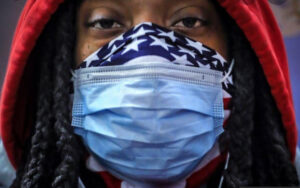
Since the COVID-19 outbreak hit the United States, misconceptions of Black Americans being immune to the virus spread across social media, leaving many thinking they were safe. A lack of media representation showing the risk intensified the myth.
According to the Centers for Disease Control & Prevention, 33 percent of those hospitalized due to the coronavirus are Black Americans, even though Black Americans make up just 1e percent of the population.
In Chicago and New Orleans, 70-80 percent of coronavirus cases are Black Americans.
The number of cases is disproportionately high for Black families, but why?
Pre-existing illnesses like diabetes, asthma and other respiratory complications, already higher in the Black community, are significant risks for contracting COVID-19.
Briana Reed, a Tampa native, talked about her reaction to the high percentage of Black families affected by COVID-19 and why the rate is at an all-time high.
“In the beginning, when they talked about the risks for people catching the virus, they said people of old age and weak immune systems were at high risk. Seeing the news and them showing Black individuals with the virus, I feel people didn’t think much of it,” Reed said. “In the areas affected the most by COVID-19 are those living in low-income communities, who have a lack of materials to protect them.”
This pandemic also taps into some racial and demographic issues.
The shock of the risk to Black Americans didn’t have an impact until people noticed the statistics of people contracting the virus.
In Chicago, 70 percent of cases are Black Americans.
Statistics also show that only 20 percent of Black Americans were able to work from home, and the majority of them work minimum wage jobs or working in the front lines of the pandemic. They also work doing transportation services, postal services, or any essential industries.
Branielle Edmonds, a student at Florida A&M University, talked about how she feels about the situation.
“I feel like it is alarming. I wonder what challenging ailments and underlying conditions aid in this data? It’s scary to think that we are more susceptible to the virus,” Edmonds said.
With the numbers rising and America has yet to reach its peak of cases, many issues should be discussed about how Black Americans are affected the most. Still, the community also needs to take extra steps into protecting themselves and their families.